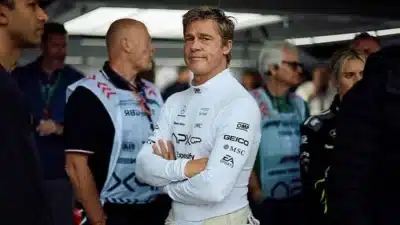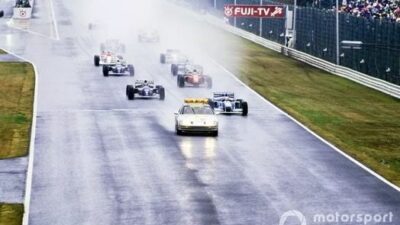Most people spend their early twenties in college or starting their first jobs, but Formula 1 drivers often achieve incredible success at remarkably young ages. The sport has a rich history of young talent breaking records and making headlines around the world.

Max Verstappen became the youngest race winner in Formula 1 history when he won the 2016 Spanish Grand Prix at just 18 years old. This achievement changed how people view young drivers in the sport. Many other drivers have also won their first races and championships at very young ages.
The stories of these young winners show how talent and opportunity can create history. From Grand Prix victories to world championships, these drivers prove that age doesn’t always determine success in Formula 1.
Key Takeaways
- Max Verstappen holds the record as the youngest Grand Prix winner in Formula 1 history
- Several drivers have won world championships before turning 25 years old
- Young winners have achieved success across different eras and with various teams throughout Formula 1 history
Defining Youngest Winners in Formula 1

Formula 1 measures youngest winners by exact age at the time of victory, down to days and months. The sport has specific age requirements for drivers to compete, while early wins often signal exceptional talent and future championship potential.
Criteria for ‘Youngest Winner’
The youngest winner category measures a driver’s exact age when they cross the finish line first. Officials calculate age in years, months, and days for precise rankings.
Max Verstappen holds the record as the youngest race winner in F1 history. He won the 2016 Spanish Grand Prix at 18 years, 7 months, and 15 days old.
The measurement includes only official race victories. Sprint race wins, pole positions, and fastest laps don’t count toward this record.
Timing matters greatly in these calculations. A driver who wins just one day earlier than another can claim the younger record. This precision creates clear rankings among young Formula 1 drivers.
Regulations on Driver Age
Formula 1 requires drivers to hold a Super License to compete. The minimum age for a Super License is 18 years old.
Drivers must complete specific training requirements before their 18th birthday. These include Formula 2 or Formula 3 experience and simulator training.
The 18-year minimum prevents younger drivers from competing. This rule was created for safety reasons and driver development.
Some drivers turn 18 just weeks before their first race. Verstappen received his Super License shortly before his debut with Toro Rosso in 2015.
The FIA reviews age requirements regularly. They balance safety concerns with opportunities for young talent to advance.
Significance of Early Wins
Early race victories often predict future success in the World Drivers’ Championship. Young champions like Sebastian Vettel won races before claiming their first title.
Teams invest heavily in drivers who win at young ages. These victories demonstrate raw speed and pressure handling ability.
Career momentum builds quickly after a first win. Sponsors and top teams notice drivers who succeed early in their careers.
Most youngest race winners eventually compete for championships. Their early success shows they can perform under Formula 1’s intense pressure.
Young winners also inspire the next generation of drivers. They prove that age doesn’t always determine racing success in Formula 1.
Record-Breaking Youngest Grand Prix Winners

Max Verstappen holds the record as the youngest F1 race winner at just 18 years old. Several other drivers have also made history by winning races at remarkably young ages, often driving for top teams like Red Bull, McLaren, and Ferrari.
Max Verstappen: Youngest Ever Race Winner
Max Verstappen made history at the 2016 Spanish Grand Prix. He won the race at 18 years and 228 days old.

Red Bull promoted him from their junior team just before the race weekend. The Dutch driver replaced Daniil Kvyat in a shocking mid-season swap.
Verstappen also holds multiple other youngest records in Formula 1. He became the youngest driver to lead a lap, set a fastest lap, and score points.
His Barcelona victory came after both Mercedes drivers crashed into each other on the first lap. Lewis Hamilton and Nico Rosberg collided, leaving the door open for Verstappen.
The Red Bull driver managed his tires perfectly throughout the race. He held off veteran drivers like Kimi Raikkonen from Ferrari to secure his maiden victory.
Other Notable Young Race Winners
Several drivers won their first races at remarkably young ages before Verstappen broke the record. Sebastian Vettel won at 21 years and 74 days at the 2008 Italian Grand Prix.
Lewis Hamilton claimed victory at 22 years and 154 days during his rookie season. The McLaren driver won the 2007 Canadian Grand Prix in dramatic fashion.
Fernando Alonso became a winner at 22 years and 26 days with Ferrari. He took victory at the 2003 Hungarian Grand Prix for his breakthrough moment.
Charles Leclerc won his first race at 21 years and 307 days. The Ferrari driver secured victory at the 2019 Belgian Grand Prix after a strong qualifying performance.
Teams and Cars Behind Historic Wins
Red Bull has produced multiple young race winners throughout their F1 history. The team’s aggressive promotion strategy often gives young drivers championship-winning cars early in their careers.
McLaren has historically supported young talent like Hamilton. The British team provided competitive machinery during Hamilton’s breakthrough seasons.
Ferrari has also contributed to young driver success stories. Both Alonso and Leclerc scored their maiden victories while driving for the Italian team.
Honda engines have powered some of these historic moments. The Japanese manufacturer’s power units helped deliver competitive performance for young drivers breaking through.
Williams previously gave opportunities to young drivers in competitive cars. The team’s willingness to take risks on inexperienced drivers created several breakthrough moments.
Profiles of Iconic Young Race Winners

These three drivers changed F1 history with their early wins. Vettel broke records at age 21, Alonso dominated with Renault at 22, and Hamilton made history in his rookie season at 22.
Sebastian Vettel’s Rise to Success
Sebastian Vettel became the youngest race winner in F1 history when he won the 2008 Italian Grand Prix at 21 years and 73 days old. He drove for Toro Rosso that day in wet conditions at Monza.
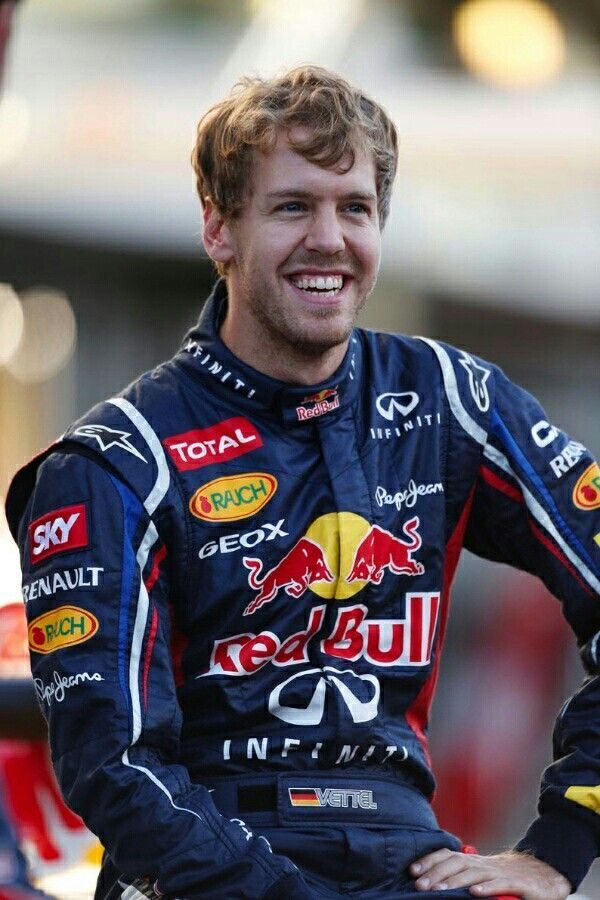
The German driver showed his talent early. He started from pole position and led most of the race. Rain made the track tricky, but Vettel stayed calm and focused.
Key Stats:
- Age at first win: 21 years, 73 days
- Team: Toro Rosso (Red Bull’s sister team)
- Race: 2008 Italian Grand Prix
Vettel’s win was special because Toro Rosso had never won before. The team was known for developing young drivers, not winning races. His victory shocked the F1 world.
After joining Red Bull Racing, Vettel won four straight championships from 2010 to 2013. He later raced for Ferrari and Aston Martin. His early success at Toro Rosso launched one of F1’s greatest careers.
Fernando Alonso’s Early Triumphs
Fernando Alonso won his first race at the 2003 Hungarian Grand Prix when he was 22 years old. He drove for Renault and became the youngest winner at that time. The Spanish driver beat Michael Schumacher and other top drivers.

Alonso’s win came in his third F1 season. Renault had not won a race in over 20 years. The team worked hard to build a fast car, and Alonso delivered the results they needed.
Career Highlights:
- First win age: 22 years, 26 days
- Team: Renault
- Championships: 2005, 2006 (both with Renault)
The Hungarian victory started Alonso’s climb to the top. He won two world championships with Renault in 2005 and 2006. These titles made him the youngest champion in F1 history at that time.
Alonso later drove for McLaren, Ferrari, and returned to McLaren again. He is known as one of F1’s most skilled drivers. His early success with Renault proved young drivers could beat experienced champions.
Lewis Hamilton’s First Victories
Lewis Hamilton won his first F1 race at the 2007 Canadian Grand Prix. He was 22 years old and in just his sixth F1 start. Hamilton drove for McLaren and won in his rookie season.
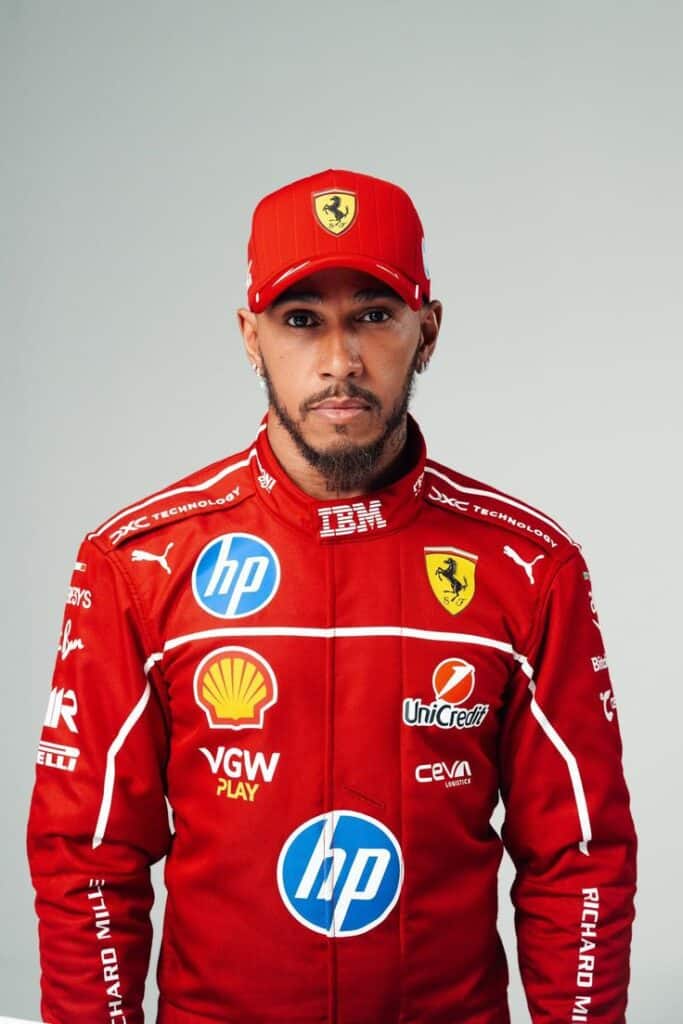
The British driver had an amazing first year. He finished on the podium in his first nine races. This record had never been achieved by a rookie driver before.
Hamilton almost won the 2007 championship in his first season. He lost by just one point to Kimi Raikkonen. McLaren gave him a top car, and he made the most of his chance.
2007 Season Results:
- Wins: 4 races
- Podiums: 12 out of 17 races
- Championship finish: 2nd place
Hamilton won the championship in 2008, his second season. He later joined Mercedes in 2013 and won six more titles. His early success at McLaren showed he was a future champion from his first race.
Youngest F1 World Drivers’ Champions

Sebastian Vettel holds the record as the youngest F1 world champion at 23 years and 134 days old when he won in 2010. Lewis Hamilton claimed his first title at 23 years and 300 days, while Fernando Alonso won at 24 years and 58 days.
Journey to the Title: Youngest Champions
Sebastian Vettel became the youngest world champion in F1 history when he won the 2010 World Drivers’ Championship with Red Bull. He was 23 years and 134 days old at the time.
The German driver’s path to the title was dramatic. He only led the championship after the final race of the season.
Lewis Hamilton previously held the youngest champion record when he won in 2008 at 23 years and 300 days old. His victory came in a nail-biting Brazilian Grand Prix where he passed Timo Glock on the final lap.
Fernando Alonso won his first title with Renault in 2005 at 24 years and 58 days old. He ended Michael Schumacher‘s dominance at Ferrari by becoming the first non-Ferrari champion since 1999.
Comparing Race Win Ages vs. Championship Ages
Young drivers often win their first race before capturing the World Drivers’ Championship. The gap between these achievements varies significantly among the youngest champions.
Championship vs. First Win Ages:
- Sebastian Vettel: First win at 21, champion at 23
- Lewis Hamilton: First win at 22, champion at 23
- Fernando Alonso: First win at 22, champion at 24
Hamilton had the shortest gap between his first victory and championship win. He won his debut race in Canada during his rookie 2007 season with McLaren.
Vettel waited two years between his first Red Bull victory and his championship. His early win came in wet conditions at Monza in 2008.
Alonso’s journey took three years from his breakthrough Hungary victory to his title with Renault. He consistently improved each season before finally challenging for championships.
Noteworthy Young Talent Across Eras

Young drivers have made their mark in Formula 1 across different decades, from legendary racers like Jim Clark and John Surtees in the 1960s to modern stars like Lando Norris breaking age records today. Each era has produced exceptional talent that won races at remarkably young ages.
Historic Young Winners: Surtees, Clark, Hulme
The 1960s produced some of the most impressive young winners in F1 history. Jim Clark won his first Grand Prix at age 22, becoming one of the sport’s greatest champions.
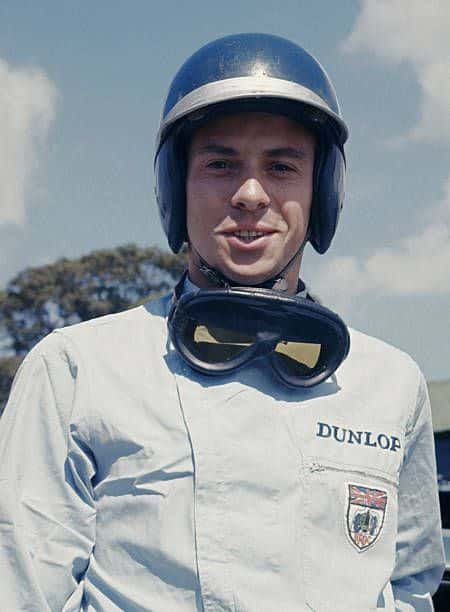
John Surtees achieved his first F1 victory at 26 years old. He remains the only person to win world championships in both motorcycle racing and Formula 1.
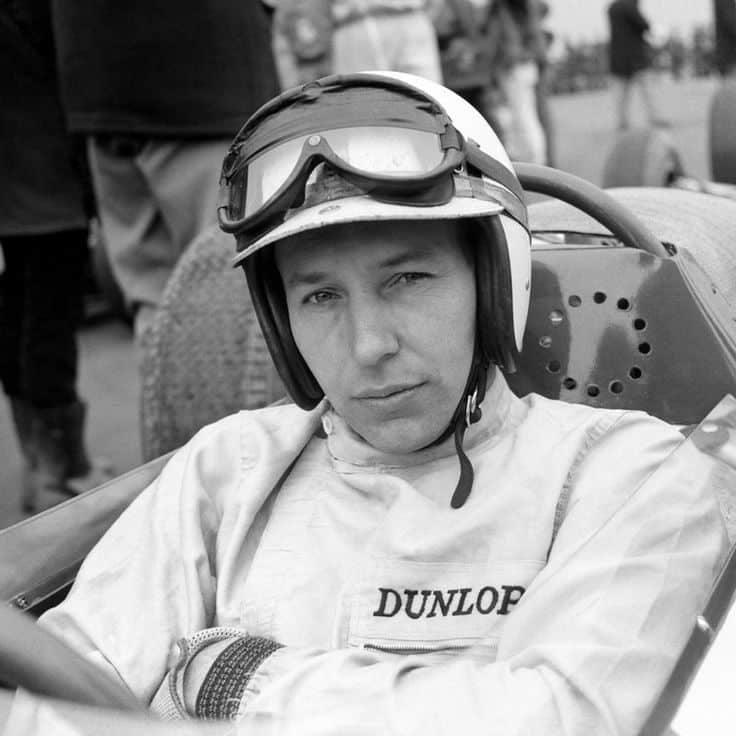
Denny Hulme from New Zealand won his first race at 24. He went on to become the 1967 World Champion with Brabham.
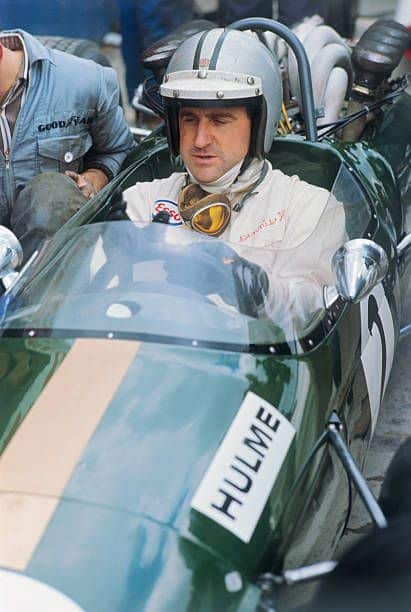
Key achievements of 1960s young winners:
- Multiple championship wins
- Dominant racing performances
- Career-defining victories at major circuits
These drivers proved that youth could compete with experience. They set the standard for future generations of young racers.
Recent Breakthroughs: Norris and the Modern Grid
Lando Norris represents the new generation of young F1 talent. He became the youngest British F1 podium finisher in history with his strong performances.

Norris started his F1 career with McLaren at just 19 years old. His consistent podium finishes show how modern young drivers can compete immediately.
The current grid features several drivers who started racing professionally as teenagers. Teams like Minardi historically gave young drivers their first chances in F1.
Modern young driver advantages:
- Advanced training programs
- Better car safety systems
- Data-driven performance analysis
Today’s young winners benefit from improved technology and coaching. They can develop skills faster than previous generations.
Significant Teams and Circuits in Young Winners’ Triumphs

Top Formula 1 teams like Red Bull, Toro Rosso, and McLaren have provided the platforms for record-breaking youth victories. Historic circuits including Monza and Jerez have witnessed some of the sport’s most memorable moments when young drivers claimed their first wins.
Team Strategies and Youth Development
Red Bull Racing transformed Max Verstappen into Formula 1’s youngest race winner at 18 years and 228 days. The team promoted him mid-season in 2016, replacing Daniil Kvyat after just four races.
McLaren nurtured Lewis Hamilton’s early career. The British team gave him his debut in 2007 and supported his first Grand Prix victory in Canada that same season.
Toro Rosso made history with Sebastian Vettel’s breakthrough win in 2008. This victory marked both Vettel’s first triumph and the team’s only win under the Toro Rosso name.
Ferrari has traditionally focused on experienced drivers. However, they signed Charles Leclerc early in his career, allowing him to secure multiple victories before age 25.
Honda and Williams have also contributed to young driver development programs. These teams often provide stepping stones for future champions to gain experience.
Legendary Grands Prix: Monza, Jerez, More
Monza has witnessed several young drivers achieve breakthrough moments. The Italian circuit’s high-speed layout often rewards bold driving from emerging talents.
Jerez hosted memorable races where young drivers proved their potential. The Spanish circuit’s technical demands test drivers’ skills and racecraft abilities.
The Spanish Grand Prix at Barcelona became significant when Verstappen won his debut Red Bull race in 2016. This victory broke multiple age records simultaneously.
Silverstone provided Tom Chilton with his BTCC breakthrough at age 19. The British circuit’s challenging layout tested his developing skills.
Monaco’s street circuit has challenged young winners throughout history. The narrow track demands precision that separates promising drivers from future champions.
Hungaroring witnessed Fernando Alonso’s record-breaking victory in 2003. This win made him the youngest F1 race winner at that time.
Frequently Asked Questions

Young drivers have made significant impacts in Formula 1, with records spanning from race victories to championship titles. The sport has seen drivers as young as 18 achieve major milestones and win races for top teams.
Who holds the record for being the youngest driver to win a Formula 1 race?
Max Verstappen holds the record as the youngest F1 race winner. He won the 2016 Spanish Grand Prix at 18 years, 228 days old.
Verstappen achieved this victory in his first race for Red Bull Racing. He had been promoted from Toro Rosso just before the race weekend.
The previous record belonged to Sebastian Vettel. Vettel won the 2008 Italian Grand Prix at 21 years, 73 days old.
How has the age of successful Formula 1 drivers changed over the years?
The age of successful F1 drivers has decreased over recent decades. Young drivers increasingly claim world titles at earlier ages than previous generations.
Sebastian Vettel became the youngest world champion at age 23 in 2010. This trend continued with drivers like Lewis Hamilton and Fernando Alonso winning titles in their early twenties.
Modern F1 has better training programs and junior categories. Teams now invest more in developing young talent from karting through junior formulas.
What are some notable achievements accomplished by young drivers in Formula 1 history?
Sebastian Vettel holds multiple young driver records. He became the youngest pole sitter, race winner, and champion during his early career.
Lewis Hamilton won his first championship at 23 years old in 2008. He also became the youngest driver to lead the championship standings as a rookie.
Fernando Alonso won back-to-back championships at ages 24 and 25. Charles Leclerc became one of the youngest race winners with his victory at the 2019 Belgian Grand Prix.
Can you list the youngest Formula 1 Grand Prix winners of all time?
Max Verstappen leads the list at 18 years, 228 days old. Lance Stroll won his first race at 22 years old at the 2020 Sakhir Grand Prix.
Charles Leclerc won at 21 years, 236 days old. Sebastian Vettel achieved his first victory at 21 years, 73 days old.
Other young winners include Esteban Ocon, Lewis Hamilton, and Fernando Alonso. All of these drivers won their first races before turning 25.
What factors contribute to a young driver’s success in Formula 1 racing?
Strong junior category performance helps young drivers reach F1. Most successful young drivers dominated in Formula 3, Formula 2, or similar series.
Team support plays a crucial role in development. Red Bull, Mercedes, and Ferrari have strong junior programs that develop young talent.
Natural talent and adaptability allow young drivers to handle F1 cars quickly. Physical fitness and mental strength help them compete against experienced drivers.
Which teams have been associated with the youngest Formula 1 race winners?
Red Bull Racing has produced several young race winners. Max Verstappen, Sebastian Vettel, and Daniel Ricciardo all achieved early success with the team.
Toro Rosso (now AlphaTauri) gave young drivers their first opportunities. The team served as Red Bull’s junior squad for developing talent.
Ferrari and Mercedes have also promoted young drivers to race-winning positions. McLaren historically gave opportunities to drivers like Lewis Hamilton early in their careers.


